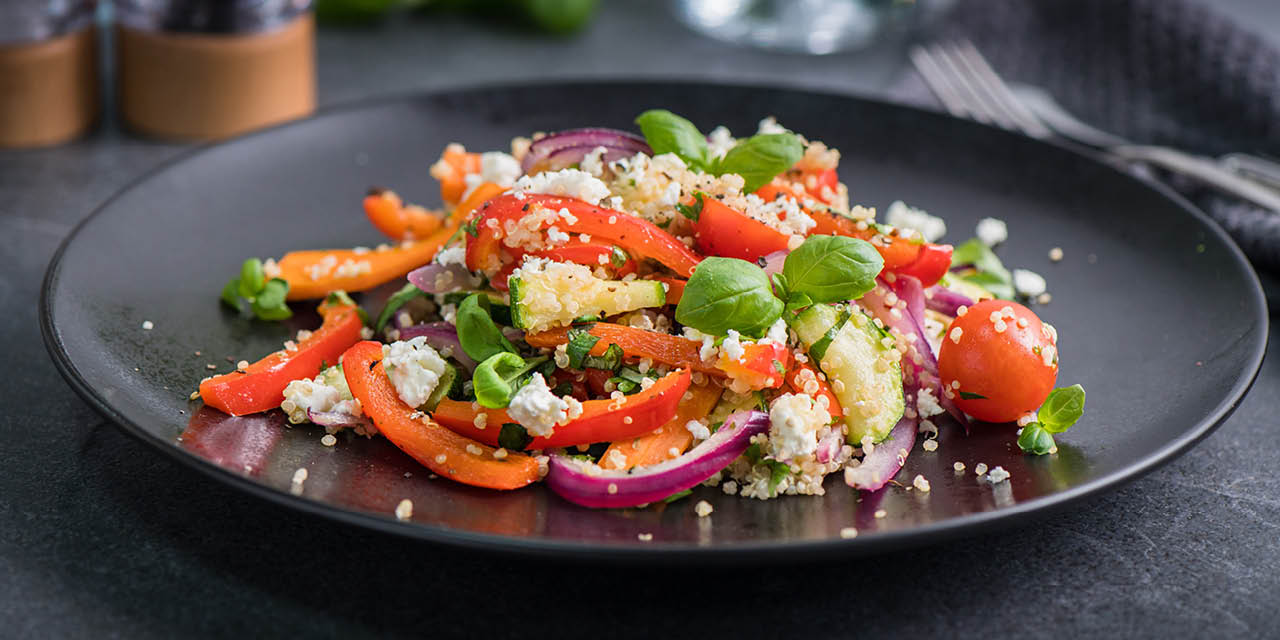Improving your health and wellness starts in your kitchen. The food you eat is fundamental to your health, so preparing it yourself is a way for you to nourish your body. Whether your goal is to change your body composition, manage a health concern, or initiate performance enhancements for sport or fitness, cooking your own food is one of the best places to start making those changes. Many companies thrive on the notion that cooking for yourself is not important, that outsourcing the job of preparing food on a daily basis is your right. That’s fine if it happens once or twice a week. But my philosophy is that, as a busy hardworking member of society, it is your right to nourish yourself with food prepared in your home, with, by, or for the people you care about. I love the experience of a good brunch, or a long dinner with friends, but the rest of the time, I make sure to prepare my own food. If you eat out for every lunch of the week, or microwave ready-made foods that have been prepared in large industrial kitchens every dinnertime in the week, you may be depriving yourself of adequate nutrition such as your vitamins or fibre, or overeating certain nutrients such as sodium or saturated fat. When you prepare your own food, you are in control over what nutrients are in the food, and ultimately, you are in control of your health.
Preparing your own food doesn’t have to be a time-consuming affair every night of the week, using multiple ingredients and a new page from your collection of recipe books. If that’s something you enjoy doing, then this post isn’t really aimed at you. You’re sorted. But if, through fatigue or time constraints, you see cooking as a chore, this is a way for you to appreciate that cooking from scratch is practical and achievable. Batch cooking is a time-saving way of preparing your own food. The principle is that you take a couple of sessions a week, maybe a Sunday afternoon and a Wednesday night, and you dedicate an hour or two to preparing a whole heap of food. These foods then get boxed and stored in the fridge for a week, to be reheated and served at the end of a busy day, or brought to work in a lunchbox. Foods that do well batch-cooked are grains and meats. In the video here I cook up a batch of salmon, cod, brown basmati rice, quinoa, and sweet potato cubes. They store really well in the fridge, and form the basis of lunch or dinner as the week goes on. In another video I make a delicious casserole, and casseroles and stews are fantastic for batch cooking, as they freeze really well and can be stored in the freezer for weeks. You just defrost, heat through, and serve. It’s Tuesday night, you come home from work late because the train line was flooded or the bus broke down; you grab the casserole that you cooked 7 weeks ago that defrosted this morning, with some fresh rice. All without ever reaching for a takeaway menu.
The tools you have at your disposal will make all the difference when it comes to batch cooking. Invest in a couple of heavy duty pots that are non-stick, a really sharp knife (believe me, its soul destroying chopping spuds with a blunt knife), chopping boards, and good-quality lunch boxes for storing food. I like the ones that have clip and seal, as I can comfortably throw them into a bag knowing they won’t leak over my laptop. Using parchment paper to line baking trays is a great way to save wash-up time. I cook for two in my home, but you can adjust the quantities depending on how many are in your household.
Start the week with a plan. What does your schedule look like? Where do the kids need to be left to and collected from, when will you get your bike ride in, when’s Mammy calling round for dinner, when will you put in overtime to finish off that project at work? Next, plan out your meals around your schedule; Meatless Monday, Thursday Night Curry, Sunday Roast etc. Then, get in all your groceries according to your meal plan. Shop online if it saves you a little more time, and just hit the reorder button every week. Then, schedule in your batch-cooking sessions, and have your main ingredients prepared for most of the week’s meals. In the video, I demonstrate just how easy it is to throw a lunchbox of food together to take to work, when you’ve all the heavy duty work done a day or two before. That requires a wee bit of effort, especially in the beginning as you get used to it, but the payoff is worth it. Feeding yourself with food you’ve prepared yourself, full of ingredients that you’ve chosen, is a sure way to thrive in pursuit of health and wellness.
Recipes in the Video
4 pieces of salmon, fresh or defrosted
Season with olive oil, salt and black pepper, wrap in parchment parcels and cook for 30 minutes at 190. If cooking frozen, add an extra 10-15 minutes cooking time, until cooked through
Method and ingredients;
4 pieces of cod, fresh or defrosted, season with olive oil, salt and black pepper, wrap in parchment parcels and cook for 30 minutes at 190. If cooking from frozen, add an extra 10-15 minutes cooking time, until cooked through
250g Quinoa
Bring to boil, and simmer on medium heat until water boils off (25-30 minutes). Stir and fluff
250g Brown Basmati Rice
Bring to boil, and simmer on medium heat until water boils off (25-30 minutes). Stir and fluff
Sweet Potato Cubes
4 medium or small sweet potatoes, peeled and cubed. Placed on parchment lined baking tray, and seasoned with olive oil and salt. Bake for 25 mins until cooked through.
Follow us on Facebook and Twitter for more health and diet tips, advice and interesting case studies. Pop back here next month for more recipes by nutritionist Carla Bredin from Wildhealthy nutrition. Explore our site for more information on health insurance options or to get a health insurance quote online today.



